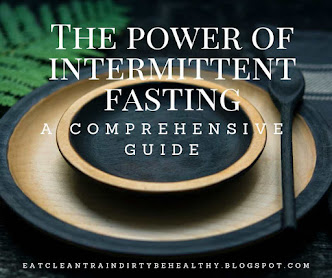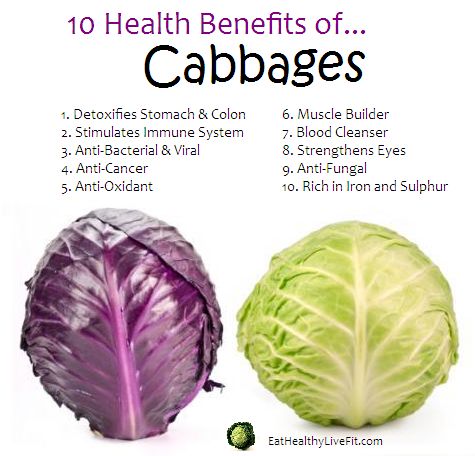The Power of Intermittent Fasting: A Comprehensive Guide
Understanding Intermittent Fasting:
Intermittent fasting involves cycling between periods of eating and fasting. Unlike traditional diets that dictate what foods to consume, IF primarily regulates when you eat. Common IF methods include:16/8
Method: Involves daily fasting for 16 hours and restricting eating to an 8-hour window.
5:2 Diet: Involves eating normally for five days a week and restricting calorie intake to 500-600 calories on the remaining two days.
Eat-Stop-Eat: Includes fasting for 24 hours once or twice a week.
Health Benefits of Intermittent Fasting:
Eat-Stop-Eat: Includes fasting for 24 hours once or twice a week.
Health Benefits of Intermittent Fasting:
Weight Management: IF can aid in weight loss by reducing calorie intake and boosting metabolism.
Improved Metabolic Health: It may enhance insulin sensitivity and lower the risk of type 2 diabetes.
Cellular Repair and Longevity: Fasting triggers cellular repair processes and may contribute to increased longevity.
Brain Health: Some studies suggest it may improve brain health, enhancing memory and reducing the risk of neurodegenerative diseases.
Heart Health: May improve heart health by reducing risk factors like cholesterol, blood pressure, and inflammation.
How Intermittent Fasting Works:
During the fasting period, the body goes through several changes:
Improved Metabolic Health: It may enhance insulin sensitivity and lower the risk of type 2 diabetes.
Cellular Repair and Longevity: Fasting triggers cellular repair processes and may contribute to increased longevity.
Brain Health: Some studies suggest it may improve brain health, enhancing memory and reducing the risk of neurodegenerative diseases.
Heart Health: May improve heart health by reducing risk factors like cholesterol, blood pressure, and inflammation.
How Intermittent Fasting Works:
During the fasting period, the body goes through several changes:
Insulin Levels Drop: Facilitating fat burning as the body accesses stored fat for energy.
Cellular Repair Processes Activate: Cells initiate repair mechanisms, including autophagy, the process of removing dysfunctional cells.
Hormonal Changes: Increased production of norepinephrine and human growth hormone, aiding fat loss and muscle gain.
Tips for Practicing Intermittent Fasting Safely:
Cellular Repair Processes Activate: Cells initiate repair mechanisms, including autophagy, the process of removing dysfunctional cells.
Hormonal Changes: Increased production of norepinephrine and human growth hormone, aiding fat loss and muscle gain.
Tips for Practicing Intermittent Fasting Safely:
Start Slowly: Begin with shorter fasting periods and gradually extend them to allow your body to adapt.
Stay Hydrated: Drink plenty of water during fasting periods to stay hydrated.
Choose Nutrient-Dense Foods: Focus on healthy, whole foods during eating windows to maximize nutritional intake.
Listen to Your Body: If you feel unwell or overly fatigued, consider adjusting your fasting schedule or consulting a healthcare professional.
Is Intermittent Fasting for Everyone?
IF might not be suitable for everyone, especially those with certain health conditions or specific dietary needs. Pregnant or breastfeeding women, individuals with a history of eating disorders, or those with chronic health conditions should approach IF with caution and consult a healthcare professional before starting.
Stay Hydrated: Drink plenty of water during fasting periods to stay hydrated.
Choose Nutrient-Dense Foods: Focus on healthy, whole foods during eating windows to maximize nutritional intake.
Listen to Your Body: If you feel unwell or overly fatigued, consider adjusting your fasting schedule or consulting a healthcare professional.
Is Intermittent Fasting for Everyone?
IF might not be suitable for everyone, especially those with certain health conditions or specific dietary needs. Pregnant or breastfeeding women, individuals with a history of eating disorders, or those with chronic health conditions should approach IF with caution and consult a healthcare professional before starting.
Intermittent fasting has emerged as a promising approach to improving overall health, but its effectiveness and suitability vary among individuals. While it offers several potential benefits, it's essential to approach IF responsibly and personalize it to fit your lifestyle and health needs. Consultation with a healthcare professional can provide personalized guidance on whether intermittent fasting is suitable for you and how best to implement it safely.
As with any dietary change, adopting intermittent fasting requires patience, consistency, and a balanced approach to reap its potential benefits while ensuring overall well-being. Integrating this eating pattern into a healthy lifestyle that includes regular exercise and a balanced diet can lead to positive outcomes for many individuals.
Have you tried intermittent fasting? If so, let us know what benefits you noticed.

As with any dietary change, adopting intermittent fasting requires patience, consistency, and a balanced approach to reap its potential benefits while ensuring overall well-being. Integrating this eating pattern into a healthy lifestyle that includes regular exercise and a balanced diet can lead to positive outcomes for many individuals.
Have you tried intermittent fasting? If so, let us know what benefits you noticed.




Comments
Post a Comment